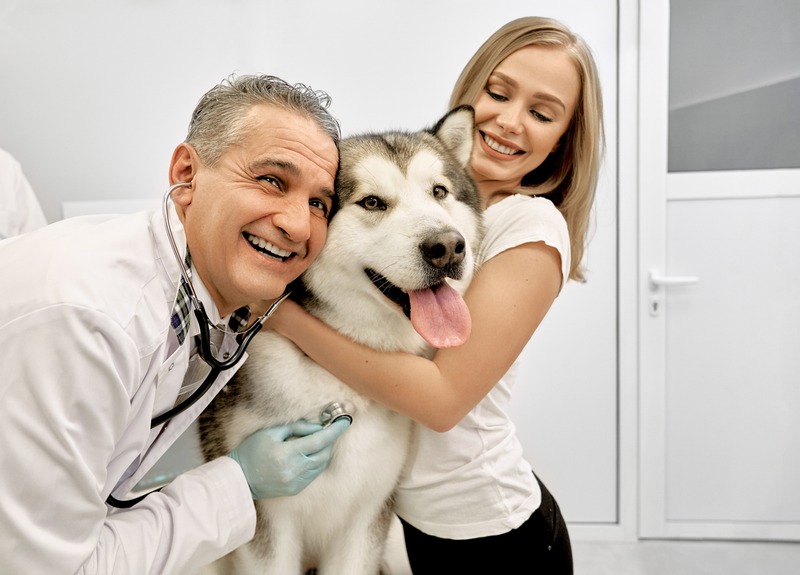If you’ve ever had the pleasure of caring for an exotic pet, you know they bring a unique joy to our lives. From colorful birds to slithering snakes, the range and characteristics of these creatures can be as diverse as their dietary needs. We all want our scaly, feathered, or furry friends to live long and healthy lives, but did you know that what you feed them plays a critical role in cancer prevention? Dig deeper into the importance of a proper diet for exotic pets, we see that health isn’t just for vets – it’s critical for every responsible pet owner.
The Connection Between Diet and Cancer in Pets
Cancer is a multifaceted disease influenced by a combination of genetics, environment, and lifestyle factors, impacting both humans and animals. For our beloved exotic pets, maintaining a balanced, nutrient-rich diet is crucial for their overall health and in minimizing their risk of cancer.
-
The Role of Nutrients:
-
Vitamins, minerals, and antioxidants in their diet are vital for repairing cellular damage and combating inflammation, which can lead to cancer.
-
A deficiency in these nutrients increases susceptibility to various diseases, including cancer.
-
Obesity and Cancer Risk:
-
Obesity in pets has been linked to numerous health issues, one of which is a heightened cancer risk.
-
Feeding your pet a diet that is calorie-dense yet nutrient-poor can contribute to unhealthy weight gain.
-
Maintaining a healthy weight for your pet through proper diet and exercise is essential for reducing their cancer risk.
By understanding the crucial connection between diet and cancer, we can make informed choices about our pets’ nutrition, thus providing them with the best possible armor against this disease.
The Right Diet for Your Exotic Pet
Each type of exotic pet requires its specific diet to meet its nutritional needs, which can be quite different from the foods humans or even common pets require. Here are some basics for a few different types:
-
Birds: Birds usually need a mix of seeds, fresh fruits, and vegetables, along with specialized pellets, to give them a well-rounded diet.
-
Reptiles: Reptiles may require a diet of live prey, plants, or a combination of both, depending on their species. Supplements are often necessary to ensure they get enough calcium and other vital nutrients.
-
Small Mammals: Rabbits, ferrets, and rodents often need a blend of hay, vegetables, fruits, and fortified pellets to provide a balance of fiber, proteins, and other nutrients.
Researching your pet’s needs or consulting a vet is essential. Failure to provide the proper diet can lead to nutrient deficiencies that not only affect overall health but can also contribute to the development of cancer.
Tips for Maintaining a Healthy Exotic Pet Diet
Here are a few simple strategies to keep your exotic pet’s diet on the right track:
-
Research your pet’s dietary requirements thoroughly
-
Use high-quality, species-appropriate food as the basis for their diet
-
Limit treats and avoid human foods that could be harmful
-
Ensure fresh water is always available
-
Adjust portion sizes to prevent obesity
-
Consider dietary supplements if recommended by your vet
Let’s remember, too, that early-life nutrition is profound, especially when we think about kitten & puppy vet care. These foundational stages can set our pets on a path to healthy adult life, including the prevention of illnesses like cancer.
Finding Professional Advice
When you’re unsure about the best diet for your exotic pet or suspect they’re not at their optimal weight, it’s time to consult the experts. Seeking professional advice is a proactive step in cancer prevention.
A knowledgeable veterinarian can offer guidance tailored to the individual needs of your pet, helping you understand the best foods to offer and the right amounts. In special circumstances, reaching out to a veterinary oncologist in Turlock, CA, could also provide valuable insight, especially if your pet has a cancer diagnosis or is at high risk for the disease.
Why Are Regular Veterinary Check-Ups Important
Regular check-ups with a vet are about more than just vaccinations and the occasional treatment of illness. These visits are an opportunity to monitor your pet’s health, including their weight and diet. They’re also the perfect time to ask all those questions you’ve been pondering about the best ways to keep your pet healthy and, hopefully, cancer-free.
Additional Resources
No matter how comprehensive our efforts are, we sometimes need to find more info. There are plenty of resources available, both online and in the real world. From vet blogs and pet health forums to scientific research papers, expanding our knowledge is a powerful tool in the fight against cancer in exotic pets. It also helps us feel more connected to a community of pet lovers who share our concerns and our dedication to our pets’ well-being.
Let’s wrap up what we’ve discussed:
-
Diet is a critical component in preventing cancer in exotic pets, supplying them with the nutrients they need to fight off diseases.
-
Proper nutrition from a young age, such as what’s needed for kitten & puppy vet care, sets the foundation for a healthier future.
-
Obesity is a risk factor for cancer in pets, making proper portion control and diet composition crucial.
-
Regular veterinary check-ups, including consultations with specialists like a veterinary oncologist, can help keep your pet healthy.
-
There are many resources available to help us find more info and make informed decisions about our pets’ health.
Final Thoughts
In essence, feeding your exotic pet a nutritious and balanced diet is an act of love – one that could have profound implications for their longevity and quality of life. While genetics and other factors also play a role, diet is one area in which we have direct influence. So, let’s make every meal count in the fight against cancer and the pursuit of happy, healthy lives for our exotic friends.


